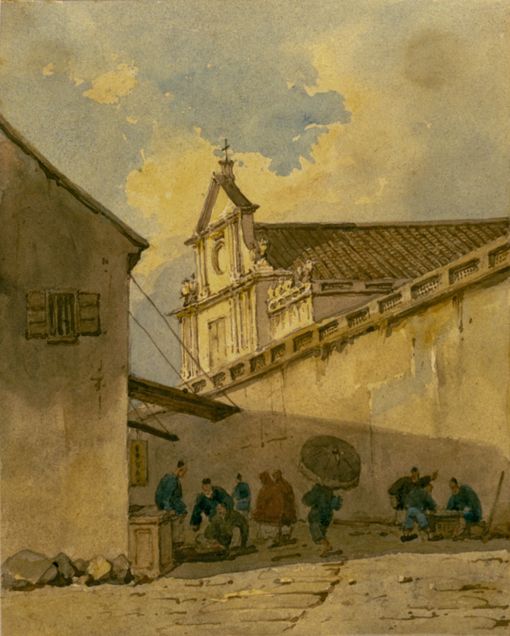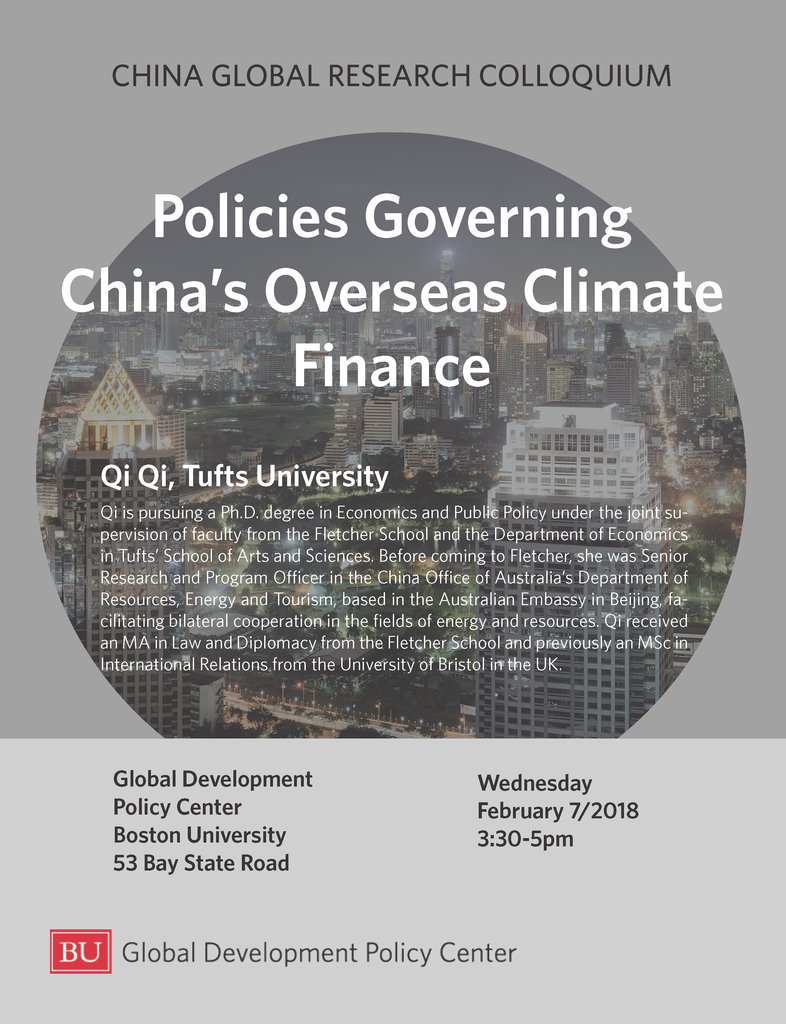History in Images, History in Words: In Search of Facts in Documentary Filmmaking
History in Images, History in Words:
In Search of Facts
in Documentary Filmmaking
A lecture by Carma Hinton
Robinson Professor of Visual Culture and Chinese Studies at George Mason University
Monday April 10, 2017 from 4-7 pm
at the Photonics Center (9th fl.), 8 St. Mary’s Street, Boston University
 My presentation will focus on the process of documentary filmmaking, especially the many challenges my team and I faced in trying to create engaging filmic narratives that are both factually accurate and encompass multiple perspectives. I will use excerpts from my films as well as out-takes to illustrate the difficulties in determining what information to include and exclude, assess the compromises involved in the choices, and explore the consequences of taking various possible paths. I will also address the different problems that a historian encounters when presenting history in images as opposed to in words: the potential and limitation of each medium and what information each might privilege or obscure. I believe that in this age of “alternative facts” and “parallel universes,” reflections on the challenges in obtaining authenticity and truth and the importance of relentlessly striving to reach this goal, take on particularly urgent meaning.
My presentation will focus on the process of documentary filmmaking, especially the many challenges my team and I faced in trying to create engaging filmic narratives that are both factually accurate and encompass multiple perspectives. I will use excerpts from my films as well as out-takes to illustrate the difficulties in determining what information to include and exclude, assess the compromises involved in the choices, and explore the consequences of taking various possible paths. I will also address the different problems that a historian encounters when presenting history in images as opposed to in words: the potential and limitation of each medium and what information each might privilege or obscure. I believe that in this age of “alternative facts” and “parallel universes,” reflections on the challenges in obtaining authenticity and truth and the importance of relentlessly striving to reach this goal, take on particularly urgent meaning.
About the speaker:
Carma Hinton is an art historian and a filmmaker. She received her Ph.D. in Art History from Harvard University and is now Robinson Professor of Visual Culture and Chinese Studies at George Mason University. Together with Richard Gordon, Hinton has directed many documentary films, including Small Happiness, All Under Heaven, To Taste a Hundred Herbs, Abode of Illusion: The Life and Art of Chang Dai-chien, The Gate of Heavenly Peace, and Morning Sun. She has won two Peabody Awards, the American Historical Association’s John E. O’Connor Film Award, the International Critics Prize and the Best Social and Political Documentary at the Banff Television Festival, and a National News & Documentary Emmy, among others. Hinton is currently working on a book about Chinese scrolls depicting the theme of demon quelling. Carma Hinton was born in Beijing. Chinese is her first language and culture.

Thinking Through the “Literary Chinese Cosmopolis:”
Thinking Through the "Literary Chinese Cosmopolis:"
Poetic Glimpses from Ninth Century Silla Korea and Heian Japan
Dr. Xin Wei, Korea Foundation Postdoctoral Fellow, Boston University
Chair/Discussant: Professor Wiebke Denecke, Professor of East Asian Literatures and Comparative Literature, Boston University
Thursday, March 29, 4:00 pm to 6:00 pm
Co-sponsored by the World Languages and Literatures Department and the Boston University Center for the Humanities
The event will take place at:CAS 426, Boston University, 725 Commonwealth Avenue, Boston
Abstract
Xin Wei
Korea Foundation Postdoctoral Fellow
Boston University
Sheldon Pollock’s vision of a “Sanskrit Cosmopolis” has recently inspired East Asianists to think about the nature of premodern East Asia and the interregional cultural exchange. In this paper I show how to use Pollock’s concept to discover a “Literary Chinese Cosmopolis” with its own distinctive traits. I examine the function of “literary Chinese” as a cosmopolitan poetic language in East Asia, zooming into the ninth century and the appearance of two superlative writers in literary Chinese, Ch’oe Ch’iwŏn from Silla Korea and Sugawara no Michizane from Heian Japan: Ch’oe is celebrated as the founding father of “literature in Chinese” in Korean history, and Michizane is worshiped in the many Tenmangū across Japan as the God of scholarship, one of the top three Shinto cults in modern-day Japan. Together with their Tang contemporary, Pi Rixiu, who joined Huang Chao’s rebellion to overthrow the Tang, I sample each of their poems to show their unique, but time-sensitive, participations in the “Literary Chinese Cosmopolis.” I argue that the conquering and mastering of the Chinese civilization by the “barbarians” is also the underlying reason for the collapse of the Literary Chinese cosmopolis.
Event Recap: 2018 Chinese New Year Celebration (2/22/18)
On February 22, 2018, Boston University Center for the Study of Asia (BUCSA), WLL Chinese Language Program, Global Programs, and Tufts University Confucius Institute organized an event to celebrate Chinese New Year. Here is a video recap, along with a collection of photographs taken from the event:
2018 春节晚会 from BUCSA on Vimeo.
Thank you for coming, and we hope everyone had a wonderful Chinese New Year!
China Global Research Colloquium
CHINA GLOBAL RESEARCH COLLOQUIUM
"What Global Aid, Trade, and Investment Networks Can Tell Us
About China's Belt and Road Initiative"
Wednesday February 14, 2018, 3:00 - 4:30pm
Join us on Febraury 14th and listen to Sara Sklar, Ph.D. student at Boston University on "What Global Aid, Trade, and Investment Networks Can Tell Us About China's Belt and Road Initiative."
The Colloqiuium will take place at
Global Development Policy Center, Boston University
53 Bay State Road
Register here
Prof. Menegon Co-edits Journal Issue on Maritime China and Publishes Article on Sino-Western Relations


The Journal Cross Currents: East Asian History and Culture Review (online and print journal based at UC Berkeley) published an open access issue in December 2017, co-edited by Professor Eugenio Menegon with Professors Philip Thai (Northeastern University) and Xing Hang (Brandeis University), entitled “Binding Maritime China: Control, Evasion, and Interloping.” Based on a conference with the same title organized at Boston University in May 2015, with support from the BU Center for the Study of Asia, the Dean’s Office at BU’s College of Arts and Sciences, Northeastern University Humanities Center, Brandeis East Asian Program and Office of the Dean, and the Ministry of Education in Taiwan, the issue features five articles on early modern and modern Maritime China.

Among them is Menegon’s “Interlopers at the Fringes of Empire: The Procurators of the Propaganda Fide Papal Congregation in Canton and Macao, 1700-1823.”The article examines the office of the procurator (financial agent) of the papal Sacred Congregation for the Propagation of the Faith (Sacra Congregatio de Propaganda Fide), a unique case study of noncommercial interloping in the long eighteenth century in the Pearl River Delta, which reveals the complexity and fluidity of life at the intersection of Asian and European maritime environments in the special human ecosystem between Canton and Macao. Using sources preserved in Rome, the article offers new insights into the global mechanisms of trade, communication, and religious exchange embodied by the procurators-interlopers and their networks, with significant implications for the history of the Sino-Western trade system, Qing policies toward the West and Christianity, and the history of Asian Catholic missions.
Taiwan Forum 2018
Taiwan Forum 2018:
"Museums, Qing 'Global Art,' and the
Preservation of Cultural Heritage in Taiwan and China Today"
Friday February 2, 2018, 2:00 - 5:00pm
Reception to follow
The way museums and art historical research have been changing in recent years reflects on the one hand the globalization of China and its prosperity and ambition, and on the other, the new developments in society and culture on Taiwan and China. By combining presentations on Qing court artifacts at the Palace Museums in Taiwan and the PRC as a form of early cosmopolitan and global art together with reflections on historical memory in China and Taiwan, we aim to spark a stimulating conversation on cultural heritage, ‘global’ art, and museums in Taiwan and China today.
The Taiwan Forum will take place at
Riverside Room, 121 Bay State Road
Pardee School of Global Studies
Speakers:
Prof. Cheng-hua Wang (Associate Professor, Department of Art and Archaeology, Princeton University): “The Global Nature of High Qing Court Art”
Dr. Daniel Greenberg (Mellon Teaching Fellow and Lecturer in Art History and Archaeology, Columbia University): “Empire, Environmental Art History, and the National Palace Museum Collection”
Prof. Magnus Fiskesjö (Associate Professor, Department of Anthropology, Cornell University): "Museums and Historical Memory Between China and Taiwan"
BU Chairs:
Professor Cathy Yeh (Chinese Literature and Transnational Studies; Department of World Languages and Director of BUCSA)
Professor Eugenio Menegon (Chinese and Global History; Department of History)
BU Respondents:
Professor Alice Tseng (History of Japanese Art and Architecture; Chair, Department of History of Art and Architecture)
Professor Robert E. Murowchick (Chinese and East Asian Archaeology; Associate Director of BUCSA and Director of BU's AsianArc Initiative)
The Taiwan Forum is co-sponsored by the ROC Ministry of Education and the Education Division--TECO Boston
China Global Research Colloquium
CHINA GLOBAL RESEARCH COLLOQUIUM
"Policies Governing China's Overseas Climate Finance"
Wednesday February 7, 2018, 3:30 - 5:00pm
The first China Colloquium in the series will take place on February 7th. Qi Qi, Ph.D. student in Economics and Public Policy under the joint supervision of faculty from the Fletcher School and the Department of Economics in Tufts’ School of Arts and Sciences, will lead the first roundtable on "Policies Governing China's Overseas Climate Finance."
The Colloqiuium will take place at
Global Development Policy Center, Boston University
53 Bay State Road
Register here
Oppositional Art: Chinese Christian Propaganda Posters
Oppositional Art:
Chinese Christian Propaganda Posters
Friday February 9, 2018, 1:00pm
CURA Colloquium with Daryl Ireland, School of Theology Email cura@bu.edu for a copy of this paper in advance.
The discussion will take place at
BU's Institute on Culture, Religion & World Affairs (CURA),
10 Lenox Street, Brookline, MA
Department of Religion Annual Lecture
Asian Images Inside-Out:
What the Contents of Statues Can Tell Us
About Domestic and Communal Religion
Thursday, February 8, 2018, 5:00pm
Reception to follow
The lecture will take place at
Photonics Colloquium Room
8 St. Mary's Street, 9th floor
China Global Research Colloquium: Rare Earth Frontiers
CHINA GLOBAL RESEARCH COLLOQUIUM
"Rare Earth Frontiers: From Terrestrial Subsoils to Lunar Landscapes"
Wednesday February 21, 2018, 3:00 - 4:30pm
The Colloqiuium will take place at
Global Development Policy Center, Boston University
53 Bay State Road
2018 BU ASIAN FILM WEEK
BU ASIAN FILM WEEK
Asian Heritage: The Past in the Present
February 21 - 28, 2018
For BU Community only
COLLOQUIUM
Speakers:
Roberta Micallef (BU WLL)
Yoon Sun Yang (BU WLL)
Sarah Frederick (BU WLL)
Shilpa Parnami (BU WLL)
Petrus Liu (BU WLL)
Time: Wednesday, February 21, 2018, 3:00 pm - 6:00 pm
Location: Geddes Language Center | 685 Commonwealth Avenue, Room 533B
Dinner served
FILM SCREENINGS
Thursday 2/22
3:30-6pm | TURKISH film: "A Touch of Spice" (2003) Dir. Tassos Boulmetis
Location: Geddes Language Center | 685 Commonwealth Avenue, Room 533B
Friday 2/23
2:30-5pm | KOREAN film: “The face reader” (Kwansang, 2013) Dir. Han Jae Rim
Location: Geddes Language Center | 685 Commonwealth Avenue, Room 533B
Monday 2/26
3:30-5:30pm | JAPANESE film: “Princess Mononoke” (1997) Dir. Hayao Miyazaki
Location: Geddes Language Center | 685 Commonwealth Avenue, Room 533B
Tuesday 2/27
3:30-6pm | PAKISTANI film: “Silent Waters” (Punjabi and Urdu, 2003) Dir. Sabiha Sumar
Location: Geddes Language Center | 685 Commonwealth Avenue, Room 537A
Wednesday 2/28
3:30-6pm | CHINESE film: Swordsmen II: Asia the Invincible (1992). Dir. Ching Siu-tung
Location: Geddes Language Center | 685 Commonwealth Avenue, Room 533B






















